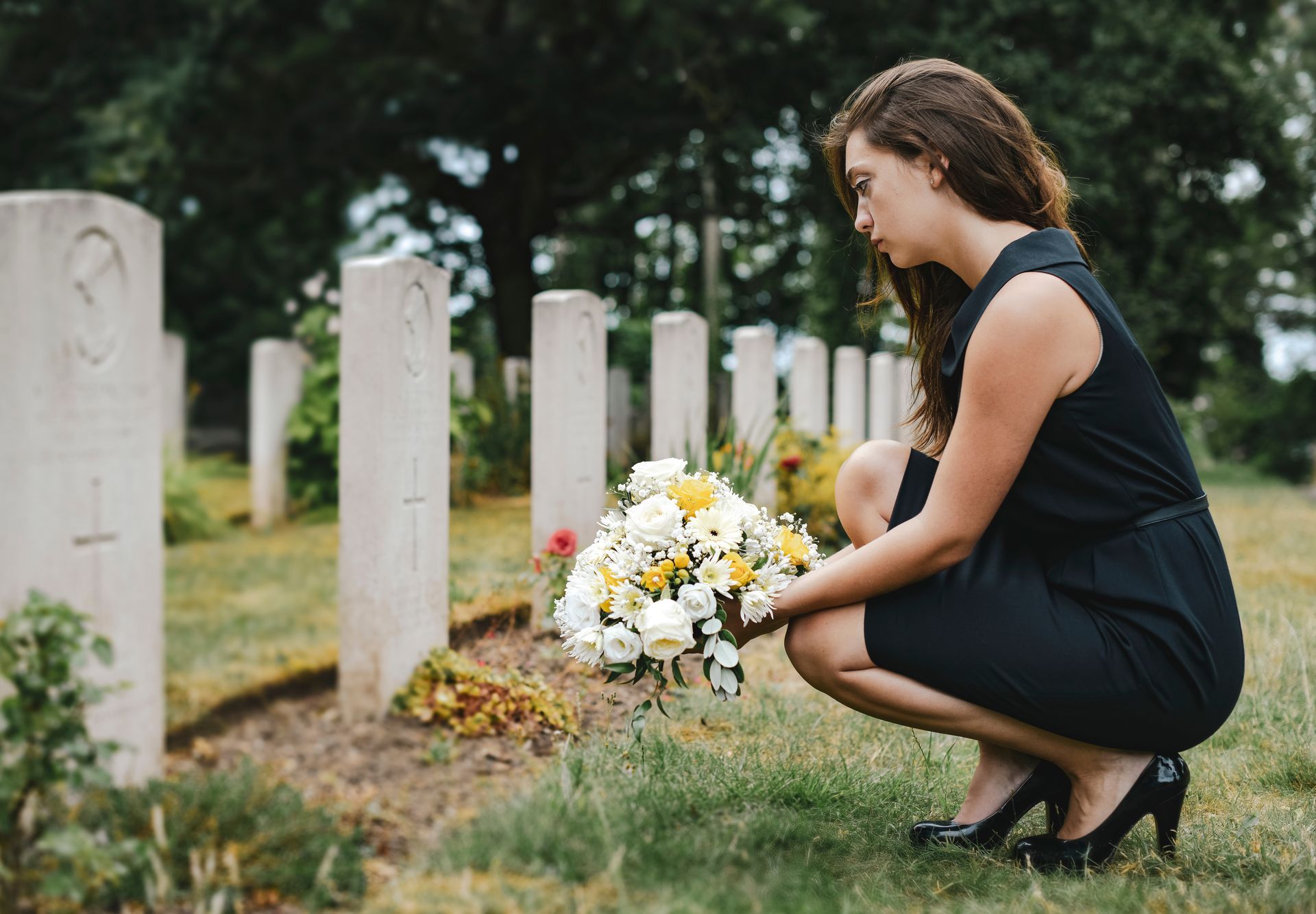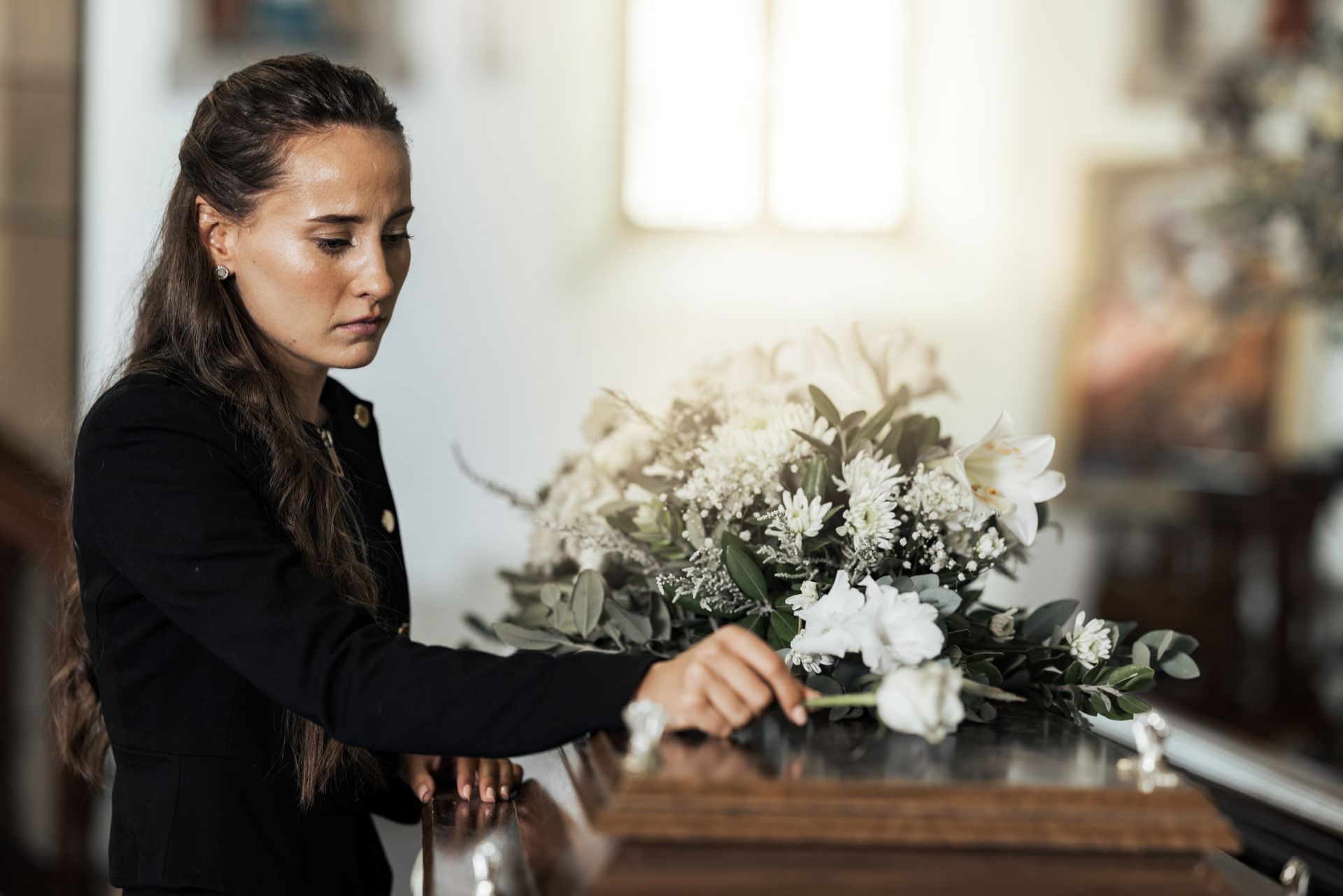How to prepare for death
Preparing for death is a deeply personal and individual process that can involve many different aspects of life, including physical, emotional, spiritual, and practical considerations. At Water and Sons, we understand just how difficult this time can be, so we’re on hand with some suggestions that may help you through the process.
1. Accept the reality of death
Death is an inevitable part of life, and accepting this fact can help you to begin to prepare for it.
2. Reflect on your values and beliefs
Take some time to think about what is most important to you in life and what kind of legacy you would like to leave behind.
3. Communicate your wishes
It's important to let your loved ones know your wishes for end-of-life care, funeral arrangements, and other important decisions.
4. Consider seeking spiritual or emotional support
Many people find comfort in seeking support from their faith community, a therapist, or a support group.
5. Make practical arrangements
This can include creating a will, updating your insurance policies, and making sure that important documents are organised and easily accessible.
6. Live fully in the present
While it's important to prepare for death, it's also important to live fully in the present moment and appreciate the time you have with your loved ones.
Remember that preparing for death is a process, and it's okay to take your time and approach it in a way that feels right for you.
How to talk to people about dying
Talking about dying can be a difficult and sensitive topic, but it's important to have these conversations with loved ones or medical professionals to ensure that end-of-life wishes are respected and to provide comfort and support to those involved.
1. Choose the right time and place
Make sure to have the conversation in a private and comfortable setting where you and the other person feel safe and relaxed.
2. Be honest and direct
Avoid using euphemisms and speak openly about the topic. Be honest about your own feelings and concerns, but also be prepared to listen to the other person's thoughts and emotions.
3. Use "I" statements
Speak from your own perspective and avoid blaming or accusing language. For example, "I am worried about what will happen when you're no longer here" instead of "You're making me worried about what will happen when you're gone."
4. Ask open-ended questions
Encourage the other person to share their thoughts and feelings by asking open-ended questions like, "How do you feel about what's happening?" or "What are your concerns?"
5. Respect the other person's wishes
If the other person does not want to talk about dying or end-of-life issues, respect their wishes and try to find another way to support them.
6. Offer support and resources
Let the other person know that you are there for them and offer to help in any way you can. Provide them with resources such as books or websites that may help them understand the dying process and cope with their emotions.
Remember, talking about dying is an important conversation that can help both you and the other person prepare for the end of life.
How to plan your own funeral
Planning your own funeral can seem like a daunting and emotional task, but it can provide peace of mind and comfort to both yourself and your loved ones. Here are some steps to help you plan your own funeral, whether that be a
no service funeral, a
low cost funeral or a
bespoke funeral.
Decide on burial or cremation
Think about whether you want to be buried or cremated, and discuss this with your loved ones. Consider religious or cultural traditions, personal preferences, and any environmental concerns.
Check out our helpful guides:
Choose a funeral home
Research funeral homes in your area and choose one that meets your needs and budget. Consider factors such as location, services offered, and reputation.
Plan the ceremony
Decide what type of ceremony you want and what you want included, such as your
registrar,
crematoria,
reception venue,
funeral music, readings,
flowers and speeches. Consider whether you want a traditional or non-traditional ceremony, and discuss this with your loved ones.
Choose a casket or urn
If you have chosen burial, select a
casket that fits your budget and preferences. If you have chosen cremation, choose an urn that reflects your personality and preferences.
Arrange for transportation
If you have chosen burial, consider whether you want a funeral procession or other transportation arrangements. If you have chosen cremation, consider whether you want your ashes scattered or interred.
Decide on a final resting place
If you have chosen burial, consider where you want to be buried and what type of grave marker you want. If you have chosen cremation, consider where you want your ashes to be scattered or interred.
Check out our
advice on scattering ashes!
Communicate your wishes
Make sure to communicate your funeral plans with your loved ones and provide them with a copy of your funeral plan and order of service. This will ensure that your wishes are respected and followed after you pass away.
Remember, planning your own funeral is a personal and individual process, so take the time to consider your options and make choices that feel right for you.
If you’re located in Southampton, Portchester or surrounding areas then you may want to consider us, here at
Water and Sons, an independent family run funeral directors in Southampton offering tailored funerals, transparent pricing and 24/7 support during your difficult time.


Home | Blog














